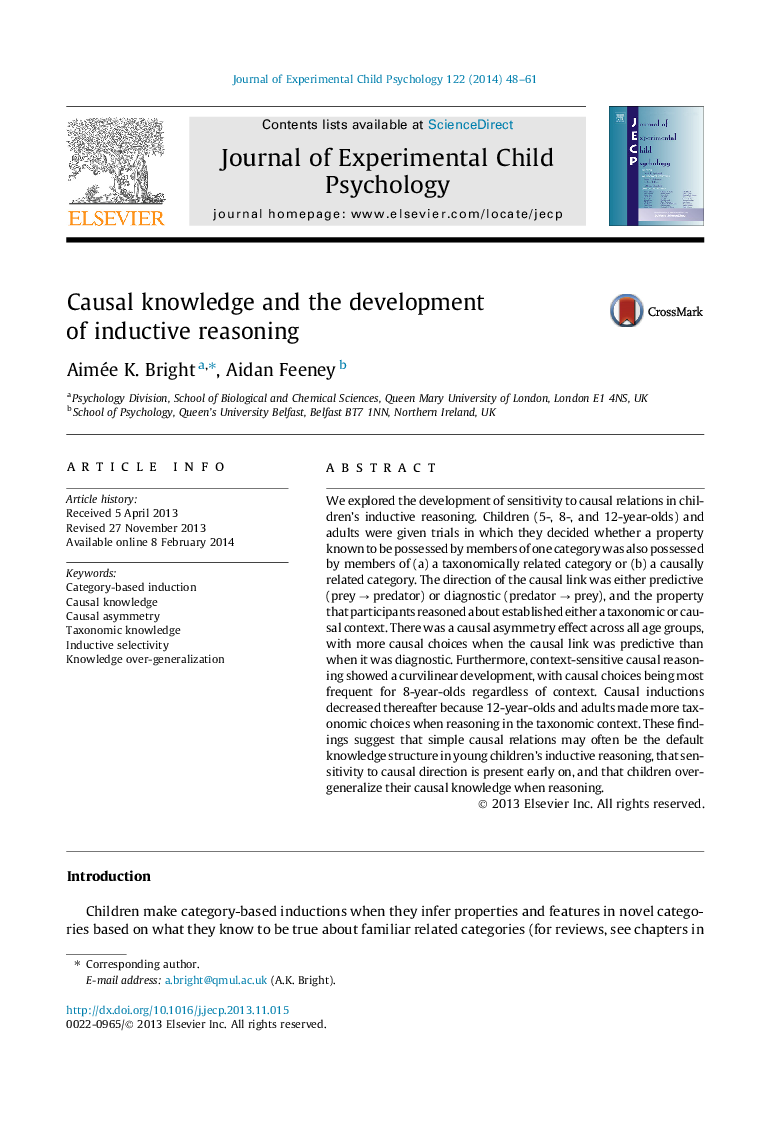| Article ID | Journal | Published Year | Pages | File Type |
|---|---|---|---|---|
| 7275575 | Journal of Experimental Child Psychology | 2014 | 14 Pages |
Abstract
We explored the development of sensitivity to causal relations in children's inductive reasoning. Children (5-, 8-, and 12-year-olds) and adults were given trials in which they decided whether a property known to be possessed by members of one category was also possessed by members of (a) a taxonomically related category or (b) a causally related category. The direction of the causal link was either predictive (prey â predator) or diagnostic (predator â prey), and the property that participants reasoned about established either a taxonomic or causal context. There was a causal asymmetry effect across all age groups, with more causal choices when the causal link was predictive than when it was diagnostic. Furthermore, context-sensitive causal reasoning showed a curvilinear development, with causal choices being most frequent for 8-year-olds regardless of context. Causal inductions decreased thereafter because 12-year-olds and adults made more taxonomic choices when reasoning in the taxonomic context. These findings suggest that simple causal relations may often be the default knowledge structure in young children's inductive reasoning, that sensitivity to causal direction is present early on, and that children over-generalize their causal knowledge when reasoning.
Related Topics
Social Sciences and Humanities
Psychology
Developmental and Educational Psychology
Authors
Aimée K. Bright, Aidan Feeney,
